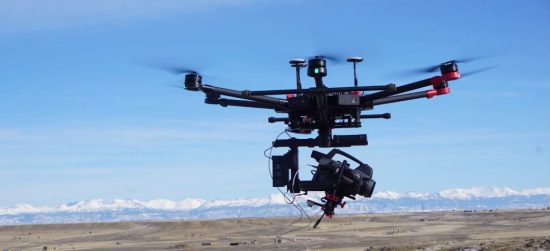
How Veolia North America Saved 3 Billion Gallons of Water in New Jersey Using Drones and AI
the staff of the Ridgewood blog
Oradell NJ, Veolia North America, which provides drinking water to more than 800,000 residents in Bergen and Hudson counties, is revolutionizing leak detection in New Jersey’s aging water infrastructure. By using drones equipped with thermal imaging and integrating artificial intelligence (AI), Veolia has saved over 3 billion gallons of treated water in recent years—water that would have otherwise leaked before reaching customers.

Why Drone Technology is a Game-Changer for Leak Detection
New Jersey’s water infrastructure is old—some pipes date back to the late 1800s. A 2018 state report noted that New Jersey American Water, the state’s largest water utility, had 8,700 miles of pipes, with 15% over 100 years old. The Natural Resources Defense Council once estimated that 130 million gallons of treated water are lost daily in New Jersey—enough to fill the Empire State Building every two days.
Leaky pipes not only waste money and resources but also lead to:
✅ Costly emergency repairs
✅ Boil-water advisories
✅ Road detours
✅ Reduced water pressure for firefighting
Veolia’s innovative drone program helps detect leaks before they escalate into major issues.
How Thermal Drones Detect Hidden Leaks
Drones equipped with thermal cameras detect leaks by identifying temperature differences in the ground:
-
In summer, leaked water cools the surrounding soil.
-
In winter, leaked water warms the surrounding soil.
This technology allows Veolia to pinpoint leak locations even when water isn’t visibly bubbling to the surface.
For example:
-
A mystery leak in Hackensack was detected after thermal imagery revealed temperature anomalies underground.
-
In Washington Township, drones found a leak after multiple failed excavations.
Beyond Leak Detection: Drones Inspect Water Tanks
Veolia also uses drones to inspect water storage tanks. Traditionally, inspections required scaffolding or harnesses—expensive, time-consuming, and risky for workers. Now, drones can easily navigate tight spaces, capturing high-resolution images to:
-
Identify corrosion and deterioration
-
Detect early signs of damage
-
Reduce costly tank repairs with proactive maintenance
AI Speeds Up the Process
Veolia is now integrating artificial intelligence into its inspection programs. AI software compares historical and current drone imagery to quickly flag changes, reducing:
-
4-hour manual inspections down to just 1 hour
-
Human error in identifying potential risks
This AI-driven approach allows Veolia to respond faster to issues and extend the lifespan of critical infrastructure.
Infrastructure Upgrades That Make a Difference
Since 2019, Veolia has:
✅ Replaced 17,000 service lines
✅ Installed 2,300 active sensors that listen for leaks
✅ Managed 2,500 miles of underground water mains and 270,000 service lines
By combining drones, AI, and sensors, Veolia is saving millions in repair costs while conserving billions of gallons of water.
Why It Matters
-
Conservation: Reducing water loss saves valuable natural resources.
-
Cost savings: Preventing leaks is far cheaper than emergency repairs.
-
Reliability: Stable water pressure improves public safety and fire response.
-
Sustainability: Modern technology helps extend the life of century-old infrastructure.
Veolia’s proactive strategy shows how smart technology can solve long-standing water infrastructure challenges—ensuring cleaner, safer, and more reliable water for New Jersey residents.
Join the new Saddle River Valley, Ramapo and Pascack Valley Communities Facebook group
https://www.facebook.com/groups/1931704860512551/
#news #follow #media #trending #viral #newsupdate #currentaffairs #BergenCountyNews #NJBreakingNews #NJHeadlines #NJTopStories

Then why not pass the savings on to your customers…?
Cool tech!